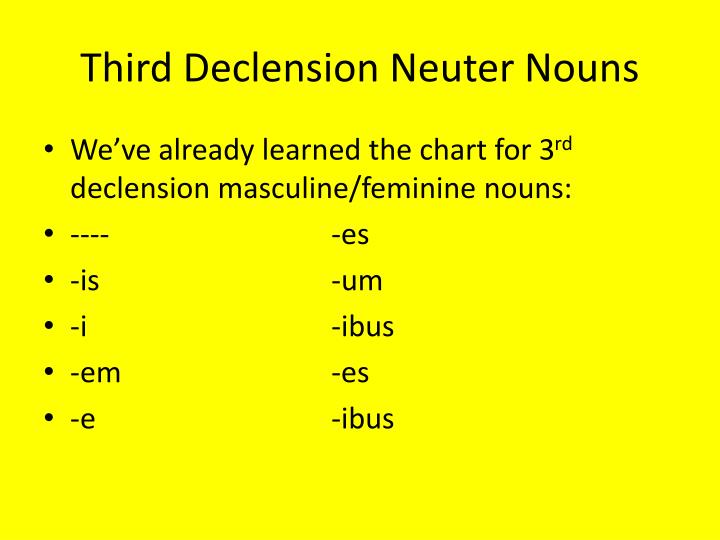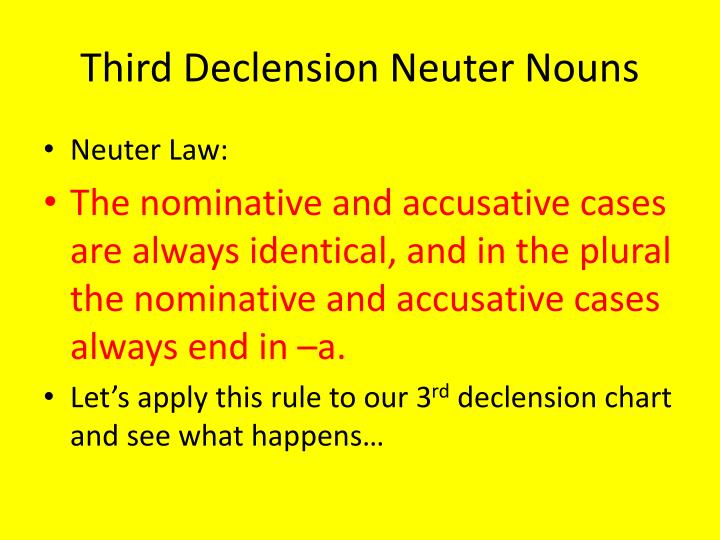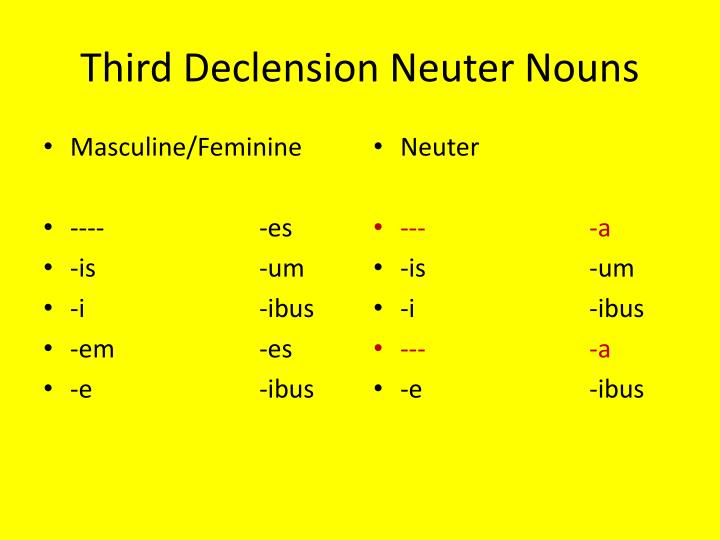

In Modern English, the system of declensions is very simple compared to some other languages, so much so that the term declension is rarely applied to English in practice. Most nouns in English have distinct singular and plural forms and have distinct plain and possessive forms. Plurality is most commonly shown by the clitic-s (or -es), whereas …
Apr 05, 2018 · Latin words of the second declension are generally of masculine gender (ending in -us) or neuter gender (ending in -um), and have a genitive in -ī. Latin words borrowed from Ancient Greek’s second declension are inflected with a varying mixture of Greek and Latin endings


The supine is a verbal noun in Latin. Learn how to decline the Latin supine using the fourth declension, but you need to find the noun stem first.


Welcome to LatinTests.net’s interactive Grammar tables! These self-checking exercises test your knowledge of all the cases of Latin nouns, adjectives and pronouns.
FIRST, SECOND AND THIRD DECLENSION 1. First Declension Nouns are declined thus: Singular Plural Nom.-a -ae Gen.-ae -arum Dat. -ae -is Acc.-am -as Abl.-a -is 2. Second Declension Nouns are declined thus: Masculine Neuter
CASE SINGULAR PLURAL; Nominative. Genitive. Dative. Accusative. Ablative. Waiting for answers
Nov 15, 2017 · Nouns [] Description []. Latin nouns of the third declension comprise consonant stems and i-stems (e.g., as the i in the neutral genitive plural ium).They are of all three genders, and have genitives in -is.The forms of the nominative and vocative singular are identical to each other and are often quite different from other cases, in …
What’s So Different about the ĭ-stem? These are the main differences: The genitive plural is -ium instead of -um.; The neuter plural forms of -a become -ia.; Is It an ĭ-stem? An i-Stem third declension noun has one of the following characteristics:
Adjectives must agree with the nouns they modify in case, number, and gender. Thus, Latin adjectives must be declined as well. First- and second-declension adjectives are declined identically to nouns of the first and second declension.




Nouns represent a person, place, thing, or idea. In Latin, Nouns in can be either singular or plural, and have a gender of feminine, masculine, or neuter.. Latin nouns undergo declining to denote what role they play in a sentence.Declensions are patterns in which nouns, pronouns, and adjectives are inflected — which are outlined below: